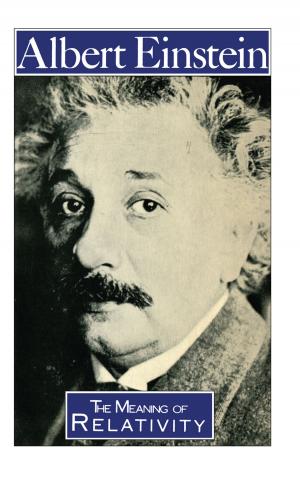The Aristotelian Tradition and the Rise of British Empiricism
Logic and Epistemology in the British Isles (1570–1689)
Nonfiction, Religion & Spirituality, Philosophy, History, Criticism, & Surveys, Science & Nature, Science, Other Sciences, Philosophy & Social Aspects| Author: | Marco Sgarbi | ISBN: | 9789400749511 |
| Publisher: | Springer Netherlands | Publication: | October 11, 2012 |
| Imprint: | Springer | Language: | English |
| Author: | Marco Sgarbi |
| ISBN: | 9789400749511 |
| Publisher: | Springer Netherlands |
| Publication: | October 11, 2012 |
| Imprint: | Springer |
| Language: | English |
Offers an extremely bold, far-reaching, and unsuspected thesis in the history of philosophy: Aristotelianism was a dominant movement of the British philosophical landscape, especially in the field of logic, and it had a long survival. British Aristotelian doctrines were strongly empiricist in nature, both in the theory of knowledge and in scientific method; this character marked and influenced further developments in British philosophy at the end of the century, and eventually gave rise to what we now call British empiricism, which is represented by philosophers such as John Locke, George Berkeley and David Hume. Beyond the apparent and explicit criticism of the old Scholastic and Aristotelian philosophy, which has been very well recognized by the scholarship in the twentieth century and which has contributed to the false notion that early modern philosophy emerged as a reaction to Aristotelianism, the present research examines the continuity, the original developments and the impact of Aristotelian doctrines and terminology in logic and epistemology as the background for the rise of empiricism.Without the Aristotelian tradition, without its doctrines, and without its conceptual elaborations, British empiricism would never have been born. The book emphasizes that philosophy is not defined only by the ‘great names’, but also by minor authors, who determine the intellectual milieu from which the canonical names emerge. It considers every single published work of logic between the middle of the sixteenth and the end of the seventeenth century, being acquainted with a number of surviving manuscripts and being well-informed about the best existing scholarship in the field.
Offers an extremely bold, far-reaching, and unsuspected thesis in the history of philosophy: Aristotelianism was a dominant movement of the British philosophical landscape, especially in the field of logic, and it had a long survival. British Aristotelian doctrines were strongly empiricist in nature, both in the theory of knowledge and in scientific method; this character marked and influenced further developments in British philosophy at the end of the century, and eventually gave rise to what we now call British empiricism, which is represented by philosophers such as John Locke, George Berkeley and David Hume. Beyond the apparent and explicit criticism of the old Scholastic and Aristotelian philosophy, which has been very well recognized by the scholarship in the twentieth century and which has contributed to the false notion that early modern philosophy emerged as a reaction to Aristotelianism, the present research examines the continuity, the original developments and the impact of Aristotelian doctrines and terminology in logic and epistemology as the background for the rise of empiricism.Without the Aristotelian tradition, without its doctrines, and without its conceptual elaborations, British empiricism would never have been born. The book emphasizes that philosophy is not defined only by the ‘great names’, but also by minor authors, who determine the intellectual milieu from which the canonical names emerge. It considers every single published work of logic between the middle of the sixteenth and the end of the seventeenth century, being acquainted with a number of surviving manuscripts and being well-informed about the best existing scholarship in the field.















